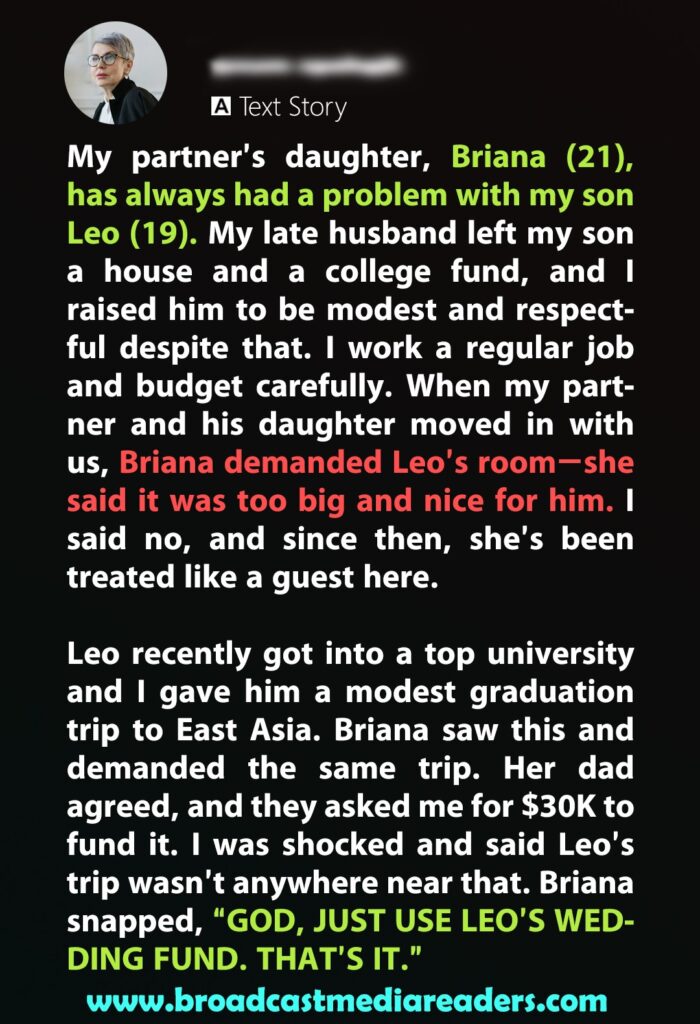When I married John, I hoped to build a blended family rooted in mutual respect. But his daughter Briana had other plans. From the moment she moved in, she treated my son Leo like a second-class citizen—demanding his bedroom, his space, and eventually, his future.
Leo never complained. He gave up his room, helped around the house, and worked two jobs while maintaining top grades. I quietly saved for years to gift him a modest graduation trip—a reward for his resilience. Briana saw it as a slight. She demanded a $30,000 luxury vacation to “even things out,” and when I refused, she told me to take the money from Leo’s wedding fund.
That was the breaking point.
John defended her, saying “family shares everything.” But this wasn’t sharing—it was entitlement. Briana had never lifted a finger, yet expected the world. When she insulted my late husband and accused me of favoritism, I realized I’d spent years sacrificing my son’s peace to keep the illusion of harmony.

I asked them both to leave—not out of anger, but to protect the home Leo had earned. John tried to reason, but I was done making excuses for people who saw kindness as weakness.
In the silence that followed, I found clarity. I hadn’t failed Briana—I’d simply stopped enabling her. And I hadn’t lost a partner—I’d reclaimed my role as a mother who puts her child’s future first.


